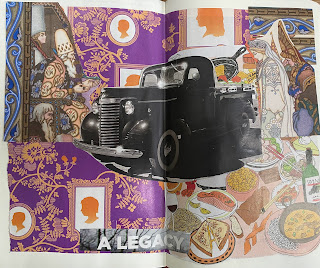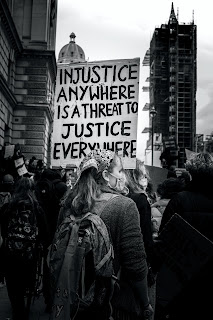Day 87 – Assuming our clients are already familiar with the arts as reclamation
 |
| Photo by Girl with red hat on Unsplash |
She spoke of the importance of celebrating the epistemologies, that is ways of knowing and of producing knowledge, that already exist within students’ cultural contexts. She emphasizes that colonization, and continued racism and discrimination, has largely been responsible for an erasure of students’ knowing and pride of these ways of knowing. By using testimonio and placticas students begin to reclaim a sense of themselves not as deficient but as a part of a larger cultural movement that embodies knowledge production and ways of knowing that are meaningful and valuable.
Flores Carmona and colleagues (2018) write:
As we began platicando [conversing/chatting], we engaged in reflexión and testimonio-telling. Through the process, we embraced our complex, overlapping and varied positionalities, knowledges, pedagogies and ways of surviving the colonial and imperial borders within the academy….Theorizing… pláticas and testimonios [is] a reflexión process that is built on trust, love, and solidarity….This process has a transformative potential that invites urgent action and new ways of sustaining resilience and enacting solidarity (Flores Carmona et al, 2018, p. 30).
This got me thinking about something I’ve been thinking a lot about. The idea that expressive arts therapy is not something we bring to clients – but something that already is! That many of our clients already use a multimodal approach to the arts and already use the arts for repair – think TikTok, think music videos, think journaling, listening to music, looking at Instagram, reading, dancing, community parties, games. How are people already engaging their sensory-aesthetic experience for self/community care?
I also think that part of the challenge of working with BIPOC, is that these forms of sensory-aesthetic experiences already happen in a cultural context, and the question of either appropriation, cross-cultural exchange, or the clinician’s unfamiliarity with arts already used by clients makes these connections complicated.
Okay – that’s enough for now… more on that topic to come, I hope!!
|
Flores Carmona, J., Hamzeh, M., Bejarano, C., Hernández Sánchez, M. E., & El Ashmawi, Y. P. (2018). Pláticas-testimonios: Practicing methodological borderlands for solidarity and resilience in academia. Chicana/Latina Studies, 18(1), 30-52. |



Comments